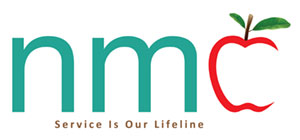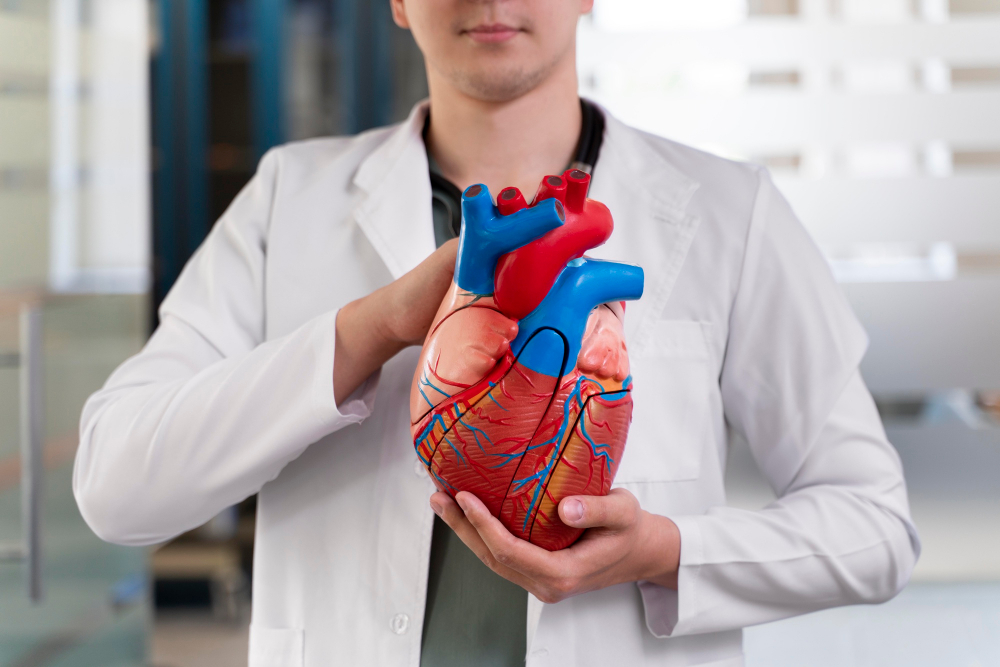Heart failure is a serious medical condition. While great strides have been made in recent years in both the prevention and treatment of cardiac conditions, it is still one of the biggest causes of either a restricted lifestyle or, in the worst case, fatality. Cardiac disease presents itself in various forms and knowing the types of heart conditions and their symptoms will help those who are at risk to get the treatment and care they need when the condition is, hopefully, at an early stage. The earlier heart failure is diagnosed and treatment begins, the better the prognosis and the likelihood of being able to return to an active and fulfilling life.
Heart disease occurs in various forms and knowing what they are and the symptoms of each one will allow those at risk to seek early treatment when the outcomes are the most positive.
Coronary Artery Disease (CAD)
This is the most common type of heart disorder wherein the coronary arteries develop blockages. The blockages are due to the gradual build-up of deposits (plaque) in the vessels over a period of years. The reduced blood supply prevents the heart from getting the oxygen it needs to function as it should.
Symptoms:
- Chest pain
- Pain in the jaw and/or neck
- Shortness of breath
Heart Arrhythmia
This is a condition that is present when the heart either beats too fast or too slow, or with an uneven rhythm. Some arrhythmias are harmless, but many can seriously increase the risk of a heart attack or stroke. Arrhythmia is a condition that should not be ignored, even if it appears to be harmless, and regular monitoring of the condition is essential to protect heart health.
Symptoms:
- Chest pain
- A very fast or slow heartbeat
- Dizziness
Heart Failure
With this condition, the heart’s blood pumping ability is affected. It is often the result of CAD, but it can also be caused by high blood pressure, thyroid disease, cardiomyopathy and other medical conditions.
Symptoms:
- Fatigue and weakness
- Shortness of breath, even when there is no exertion
- Persistent coughing
- Swollen legs, ankles and/or feet
Also Read : Life After a Heart Attack – A New Beginning
Heart Valve Disease
The heart has 4 valves that open and close to control the blood flow between the 4 chambers of the heart, the lungs and the blood vessels. If the valves do not open and close correctly, the blood flow is affected. The causes of heart valve problems include congenital heart disease, rheumatic fever, CAD, high blood pressure or muscle damage from a heart attack.
Symptoms:
- Chest pain
- Shortness of breath
- Fainting
- Fatigue
- Loss of energy
Pericardial Disease
The sac that surrounds the heart is called the pericardium and any disease that affects it is known as pericardial disease. The most common form of this ailment is an inflammation of the pericardium called pericarditis. Inflammation is often the result of a disease such as lupus or rheumatoid arthritis. It can also be the result of an injury to the pericardium and this often occurs after open heart surgery.
Symptoms:
- Chest pain
- Weakness
- Fatigue
- Low-grade fever
- Heart palpitations
Cardiomyopathy
This is a disease that affects the heart muscle or myocardium. If the muscle is stretched, stiff or thickened, the heart will be unable to pump blood to meet the body’s needs. There are many possible reasons for cardiomyopathy to develop and these include viral infections, genetic factors, reactions to drugs and/or toxins and reactions to alcohol, among others. Often, it may not be possible to pinpoint the exact cause.
Symptoms:
- Rapid heartbeat
- Dizziness
- Shortness of breath
- Swollen legs, ankles, and/or feet
Also Read : 10 Common Myths About Cardiovascular Disease
Congenital Heart Disease
Congenital means inherited and in the case of cardiac conditions it relates to a malformation or other problem with the heart that develops while the heart is forming before a child is born. Symptoms of congenital heart disease may appear after birth or there may be no symptoms until adulthood is reached. Congenital problems include holes in the wall separating the left and right sides of the heart, or a narrow valve that restricts blood supply to the lungs. In some cases, a defective blood vessel allows blood to leak back into the pulmonary artery which places a strain on the heart.
Symptoms:
- Shortness of breath
- Swelling of the legs, lower abdomen or area around the eyes
- Skin that has a blue or gray tint because of low oxygen levels
Heart disease can strike anyone at almost any age. In fact, recent years have shown a significant rise in the volume of cardiac ailments among younger people who were, until not long ago, thought to be safe from heart failure. The key to preventing cardiac conditions from developing is to have regular health checkups which will include a heart health evaluation. This will help spot potential heart problems early when treatment will be uncomplicated and the recovery quick.
If you suspect a heart ailment or have been diagnosed with one, treatment and monitoring at a cutting-edge cardiac centre is essential. The Cardiology Department of the New Medical Centre is where the best cardiologists and the best diagnostic and treatment facilities can be found.
Cardiac disease is not a death sentence. With the proper treatment, patients can go on to live long and active lives.
Frequently Asked Questions
What are the common types of heart disease?
The common types include coronary artery disease (CAD), heart arrhythmia, heart failure, valve disease, pericardial disease, cardiomyopathy, and congenital heart disease.
What are the early symptoms of heart disease?
Early symptoms may include chest pain, shortness of breath, dizziness, fatigue, and swelling in the legs or feet.
How is heart disease diagnosed?
Doctors use tests like ECG, echocardiogram, stress tests, and angiography to diagnose heart conditions.
Can heart disease be prevented?
Yes, maintaining a healthy diet, exercising regularly, managing stress, and avoiding smoking can lower the risk of heart disease.
What treatment options are available for heart disease?
Treatment varies but may include lifestyle changes, medications, medical procedures, or surgery, depending on the condition.


